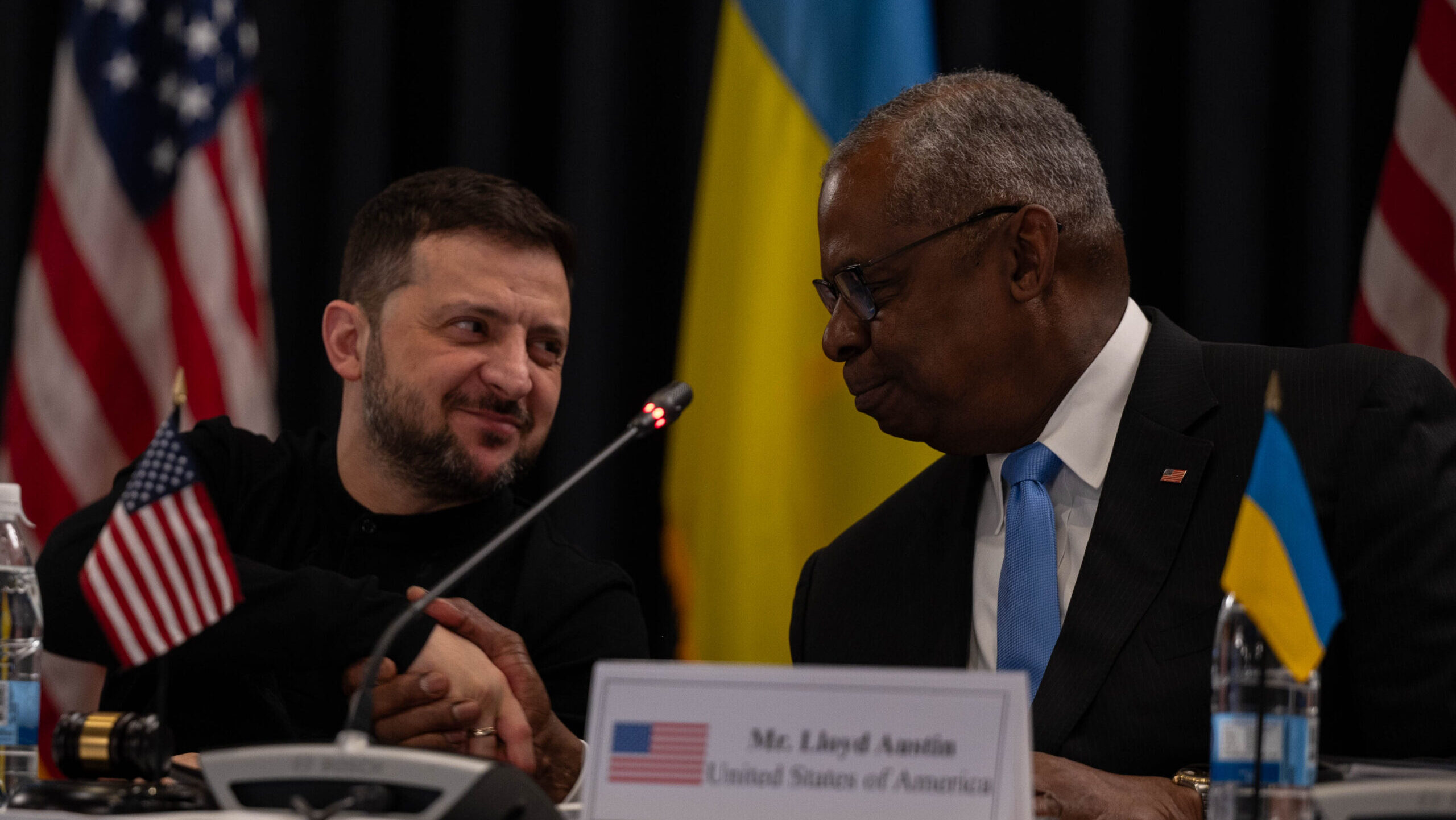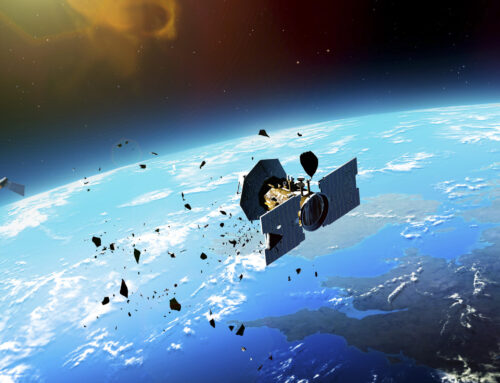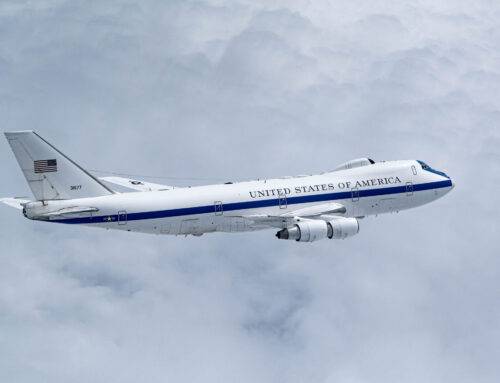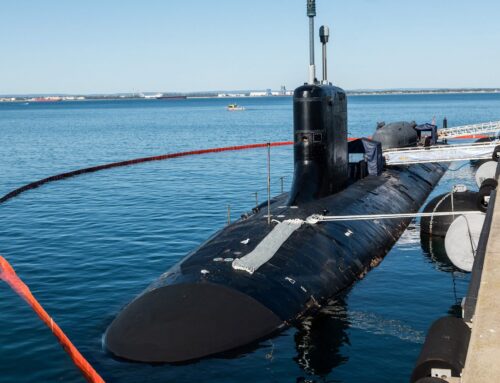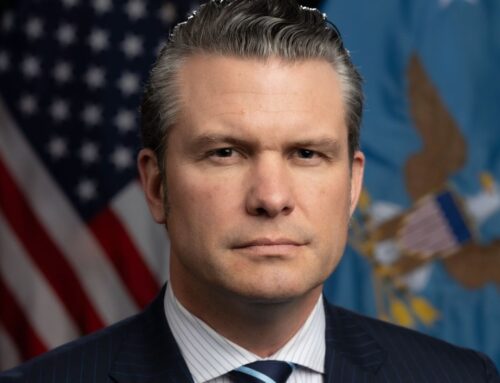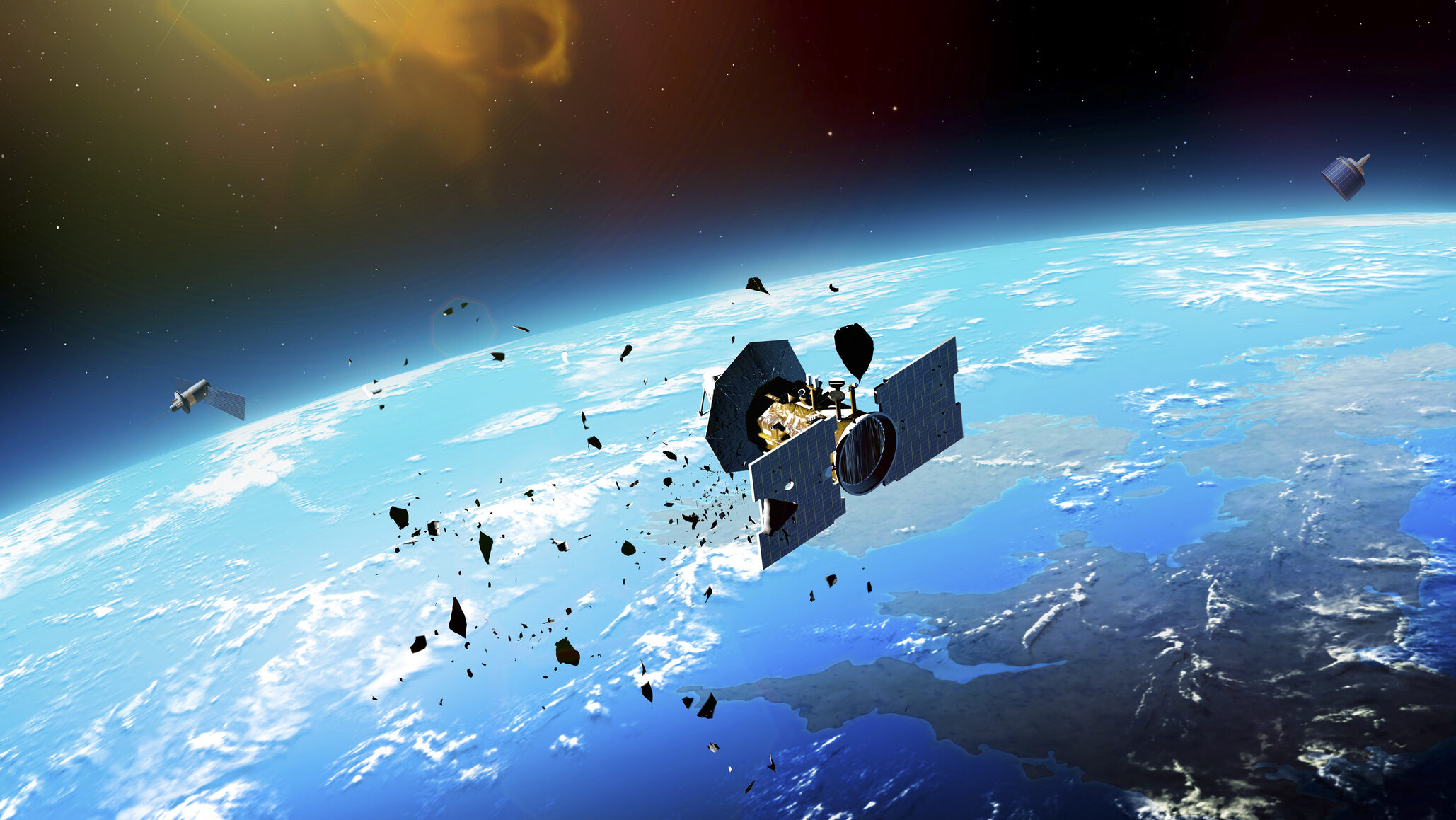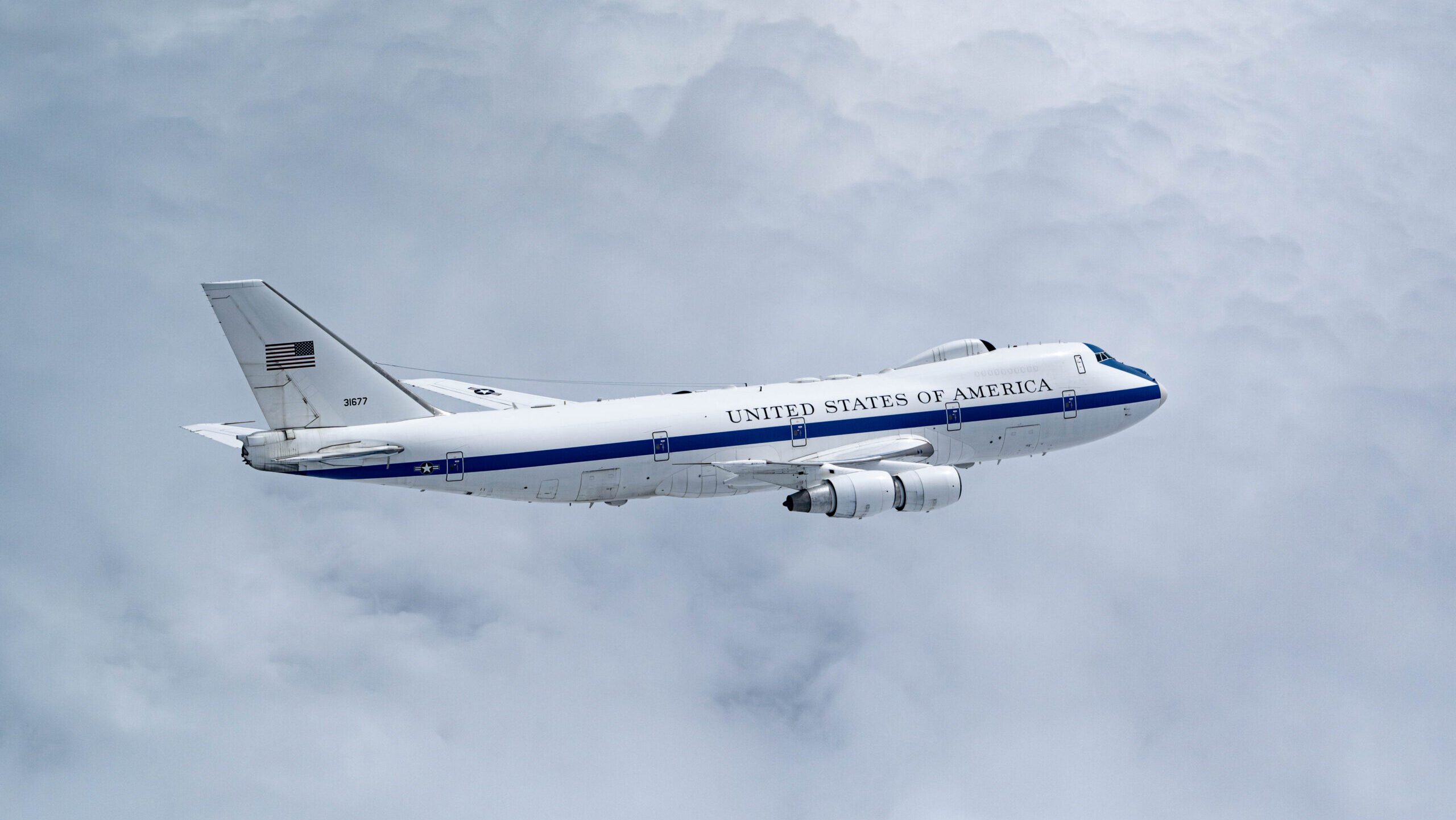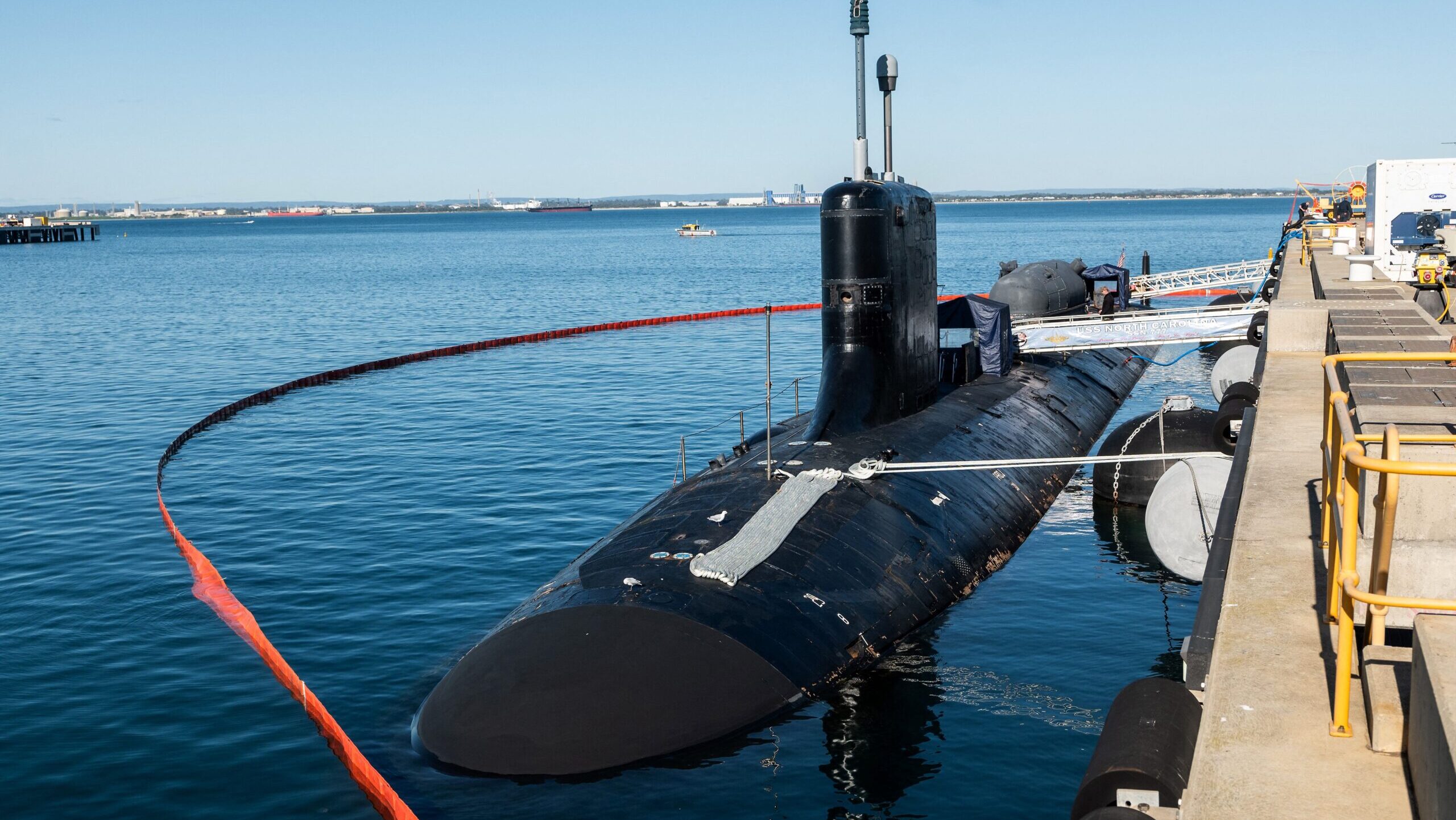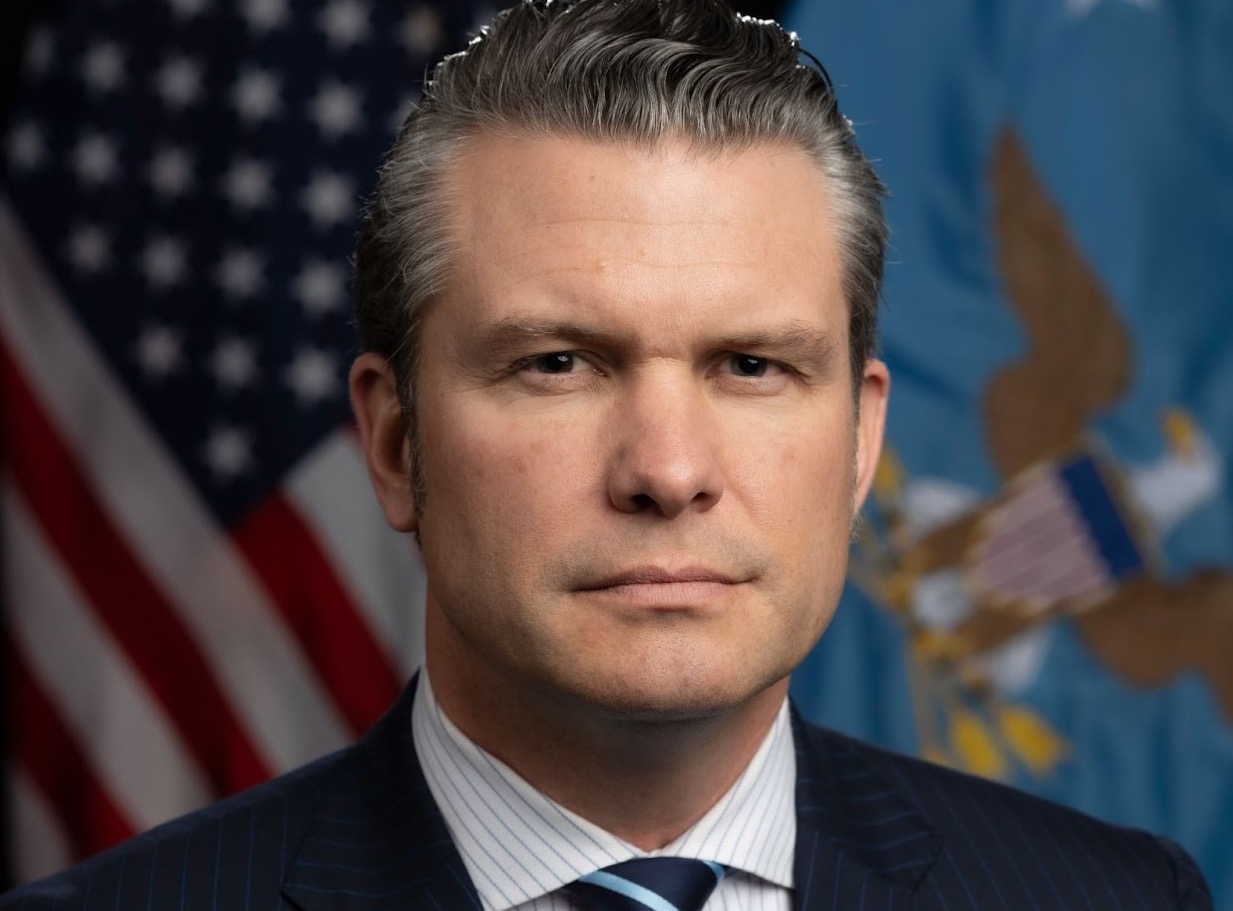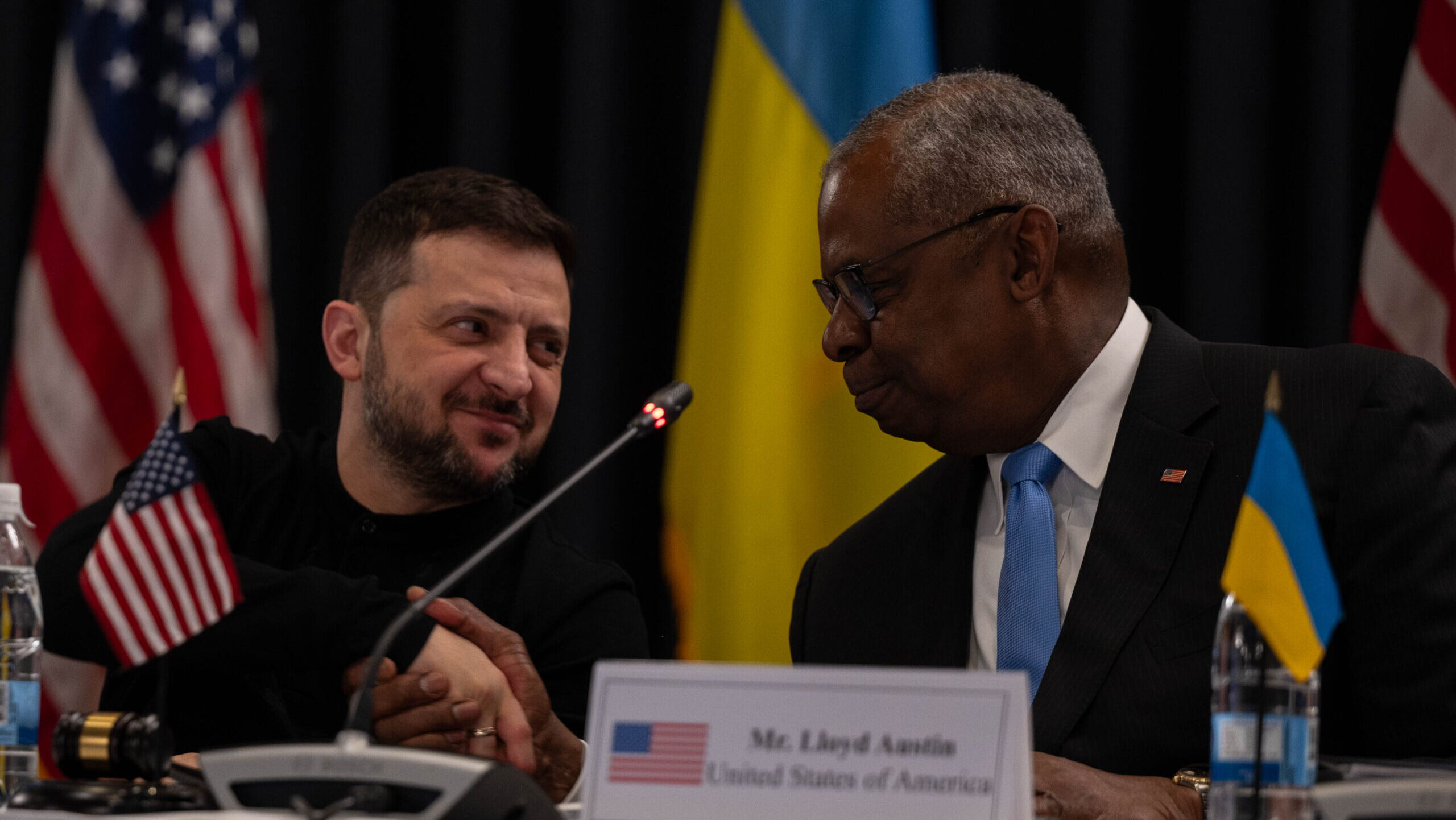
Ukraine President Volodymr Zelensky and U.S. Secretary of Defense Lloyd J. Austin III shake hands at the end of opening remarks during the Ukraine Defense Contact Group at Ramstein Air Base, Germany, Jan. 9, 2025. (U.S. Air Force photo by Senior Airman Jordan Lazaro)
WASHINGTON and BELFAST — US Secretary of Defense Lloyd Austin wrapped up his final Ukraine Defense Contact Group meeting by imploring the other members not to “flinch.”
“I’m leaving this contact group not with a farewell but a challenge: The coalition to support Ukraine must not flinch, it must not falter, and it must not fail,” Austin told reporters after the meeting. “Ukraine’s survival is on the line, but so is all of our security. [Russian President Vladimir] Putin wants to avenge a fallen empire and to rebuild it. The Kremlin’s assault starts with Ukraine, but it will not end there.”
Austin fielded questions from reporters following the 25th Ukraine Defense Contact Group, a collective of roughly 50 nations providing military support to Kyiv, including a newly announced $500 million-worth of military aid from the US. Today’s meeting at Ramstein Air Base in Germany is expected to be the final meeting under the Biden administration.
Later this month, President-elect Donald Trump is set to be sworn in for his second term and expected to usher in a host of foreign policy changes, including on Ukraine and NATO, though it remains to be seen exactly what those will be. As a result, the next time the contact group meets it could look very different.
“This is very much Secretary Austin’s brainchild, born from his experience and contributions to the D-ISIS coalition and his deep belief that, when you bring allies and partners together, the sum will be much greater than the parts,” a senior US defense official told reporters ahead of the trip.
The hope, the official later added, is for the incoming Trump administration to continue meeting allies and partners as part of the Ukraine Defense Contact Group.
“Because of the multilateral work, because of the capability coalitions and all that we have done, it will endure in some capacity, in some form going forward, I believe, regardless of exactly how the next team does or doesn’t pursue it,” the official said.
Part of the plan to help ensure that the group’s work continues revolves around the eight capability coalitions established to focus on a specific equipment requirement like fighter jets, drones, air defense systems, artillery, ammunition, tanks, naval vessels and remote detonation systems for demining. Austin announced today that each coalition endorsed individual roadmaps designed to help support Ukraine’s future force.
“Each roadmap lays out an efficient and sustainable approach to helping meet Ukraine’s long term and near-term capabilities, and that’s how this contact group has produced so much progress by working together for our shared security interests and by standing together,” Austin added.
While he took to the stage alone this afternoon local time, earlier in the day Austin appeared alongside Ukrainian President Volodymyr Zelenskyy and German Defense Minister Boris Pistorius to kick off the day and announce the $500 million military package. That package is part of the Presidential Drawdown Authority (PDA) umbrella and includes AIM-7, RIM-7, and AIM-9M missiles for air defense, air-to-ground munitions, armored bridging systems and more.
Zelenskyy, meanwhile, used the stage to commit to “end this war with dignity for Ukraine and all of Europe this year,” and said that it would be “crazy to drop the ball now and not keep building on the defense coalitions we’ve created.”
The Ukrainian leader was clear with his messaging around the need for the US to remain committed to the Ukrainian cause — language that appeared to be directed at Trump, who has criticized the level of support the US has sent to the Eastern European nation.
“No matter what’s going on in the world, everyone wants to feel sure that their country will not just be erased off the map,” Zelenskyy said. “That used to depend on a handful of big capitals, but now it’s on all of us, on how we work together, how ready we are to own our future and how well we can convince our partners to stand with us. The more determination we show in defending our interests, the more interest our partners and especially the US will see is good to stay on our side.”
Similarly Pistorius called for the contact group format to be kept “alive,” a sentiment echoed by Hanno Pevkur, Estonia’s defence minister. Pevkur said in a statement that “it is crucial for the contact group to continue its meetings even with the inauguration of a new U.S. administration.”


